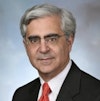Responses
The U.S. Chamber has assembled a range of preeminent experts in the field of antitrust from across a wide political spectrum to offer timely views on key questions of antitrust law and policy. This group brings together senior enforcers spanning seven administrations, and includes agency leaders from both the Antitrust Division at the Department of Justice and the Federal Trade Commission. Collectively, the experts have decades of experience counseling clients, teaching law, and writing academic and economic literature. They may not all agree on all policy matters, but they share a common belief in the importance of competition in the marketplace.
January 2026 Prompt:
Every few weeks, the Chamber poses a “prompt” to this panel of experts. The prompt can solicit open-ended answers, or come in the form of a true/false question (but we note that we’ve received lengthy answers even to those types of questions). If you have any ideas or suggestions for future prompts, please email us at theprompt@uschamber.com.
Responses to The Prompt are solely the anonymized views of individual members of the expert group. The opinions expressed should not be associated with policy positions of the U.S. Chamber, nor should the opinions be attributed to any individual in the group or to any law firm, client, organization, or affiliation an expert may have. The Chamber has provided biographical information of each expert simply to illustrate the extensive experience and thought leadership positions that each has held during his or her career. For any reason (e.g., to avoid a conflict of interest) an individual expert might elect not to participate in the response to a particular question.
Past Prompts
December 2025
November 2025
Summer '25 Featured Prompt
Spring 2025
Meet the panel

























Contact Us
If you have any questions or concerns, please email Sean Heather - Senior Vice President (sheather@uschamber.com) and Ashley Gum - Vice President (agum@uschamber.com).
Disclaimer
*Responses to the prompt are solely the anonymized views of individual members of the expert group. The opinions expressed should not be associated with policy positions of the U.S. Chamber, nor should the opinions be attributed to any individual in the group or to any law firm, client, organization, or affiliation an expert may have. The chamber has provided biographical information of each expert simply to illustrate the extensive experience and thought leadership positions that each has held during his or her career. For any reason (E.G., to avoid a conflict of interest) an individual expert might elect not to participate in the response to a particular question.
















